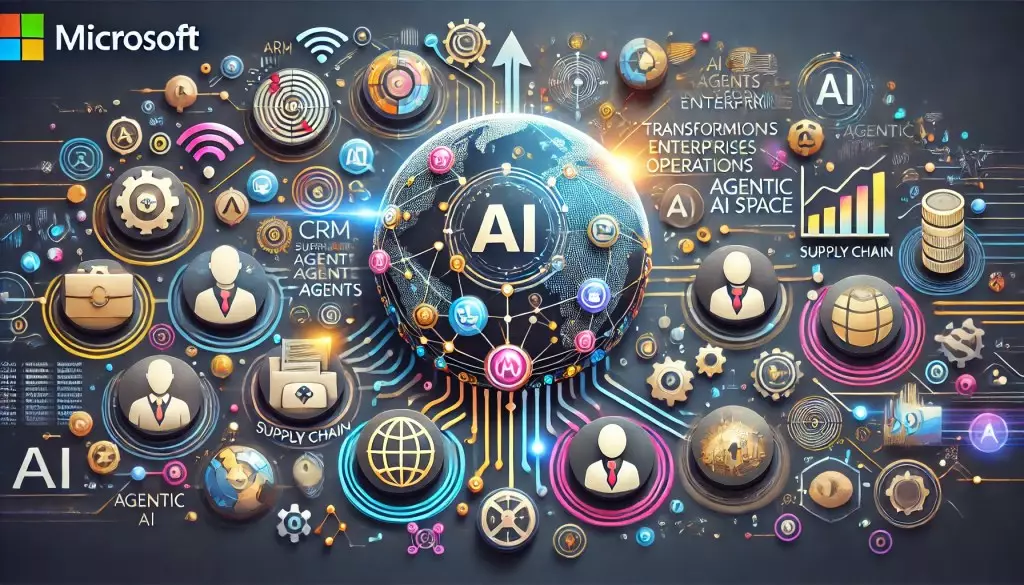In an era where artificial intelligence is quickly evolving from theoretical frameworks to practical applications, Microsoft has taken a giant leap forward in enterprise technology. At Ignite 2024, Microsoft unveiled its suite of 10 autonomous AI agents, a proclamation that signifies a robust readiness for enterprises to integrate AI into their operations in a meaningful way. This development comes at a time when many companies are still exploring the potential of AI, positioning Microsoft as a key player in the rapidly changing landscape of enterprise solutions.
Unlike conventional toolkits that necessitate extensive customization, Microsoft’s AI agents are pre-configured to manage specific workflows right out of the box. These agents address essential aspects of enterprise management, such as customer relationship management (CRM), supply chain logistics, and financial reconciliation. Organizations no longer have to engage in lengthy developmental processes to reap the benefits of AI; instead, they can deploy agents quickly to create efficiencies and streamline operations. For businesses caught in the time-wasting cycle of configuration and deployment, this innovation is nothing short of revolutionary.
The convenience of using pre-built solutions cannot be overstated. With a focus on specific tasks, these agents drastically reduce the time to value for organizations eager to adopt AI technologies. The ability to seamlessly integrate AI into everyday tasks highlights Microsoft’s strategic foresight in addressing real-world business challenges, thus making it more accessible for companies of all sizes to harness the power of AI without extensive investment in development resources.
One of the most striking features of Microsoft’s AI ecosystem is its scale. By offering 1,400 third-party connectors and compatibility with over 1,800 large language models, Microsoft has established an extensive agent framework that eclipses attempts by competitors like Salesforce and ServiceNow. These competitors have explored AI agents, but usually within more restricted parameters. Microsoft, by contrast, has effectively created a broad, flexible environment that enables far-reaching applications of AI in business processes.
Moreover, Microsoft’s engagement with 100,000 organizations currently creating or modifying agents solidifies its position as a frontrunner in enterprise AI adoption. The statistical evidence of deployment rate doubling in the last quarter vividly illustrates the demand for these solutions. This significant traction not only enhances Microsoft’s market standing but also sets a high bar for other tech giants and startups that wish to compete in this arena.
The Shift in Value Metrics
Microsoft appears to be redefining how enterprises perceive the value of large language models (LLMs). Transitioning from a “per token” payment model to one based on “per message” or “per outcome” indicates a strategic shift toward delivering measurable results rather than just raw language processing capabilities. This evolution in pricing reflects a deeper understanding of enterprise expectations; organizations are increasingly interested in outcomes that directly impact their bottom line.
This pricing strategy suggests that Microsoft is leaning away from simply providing language output and focusing more intensely on how AI can contribute to tangible business results. This may signal a new trend in enterprise AI, where value is measured in effectiveness and productivity rather than purely in the volume of data processed.
While Microsoft has positioned itself advantageously, it is essential to recognize that competitors like Google, AWS, and various open-source frameworks are actively seeking ways to close the gap. In a market that evolves incessantly, staying ahead requires not only innovative technology but also agile marketing strategies and customer engagement.
In discussing these dynamics in the video series with Sam Witteveen, we highlight the different approaches these competitors take. Understanding their strategies gives insight into how Microsoft’s advances could influence the competitive landscape. It’s a race against time; the technologies that succeed will be those that are not only ahead in features but also adept at addressing the pressing needs of enterprises seeking efficient solutions.
Microsoft’s introduction of autonomous AI agents is heralding a new era for enterprise solutions. By providing pre-built tools that facilitate immediate adoption and measurable outcomes, this tech giant is setting a commendable standard within the industry. Even with avid competition looming, the innovations presented at Ignite 2024 resonate powerfully. It will be intriguing to watch how these developments shape the future of work and redefine the role of AI in business operations.


Leave a Reply